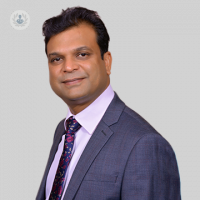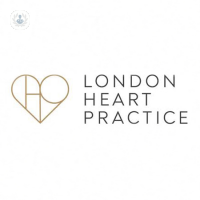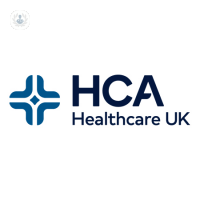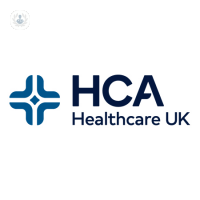What is a heart murmur?
A heart murmur is a whistling, rasping sound that is heard during a heartbeat cycle. It is an extra sound made during a heartbeat cycle. Heart murmurs can be harmless, but they may also indicate a faulty valve, for example. Heart murmurs can be heard using a stethoscope and are diagnosed and treated by cardiologists.

Are heart murmurs serious?
There are two main types of heart murmur; innocent murmurs and abnormal murmurs. Innocent murmurs present when blood flows more quickly than usual through the heart. This can result from pregnancy, exercise, illness or growth spurts (e.g. puberty).
Abnormal murmurs are common in cases of congenital heart defects in babies, such as valve problems or holes in the heart. In many cases, heart murmurs are not life-threatening and don’t require any treatment. Depending on the cause of the murmur, such as pregnancy, they can also go away on their own. However, if the murmur is an indication of a serious underlying heart problem, treatment will be required.
What does a heart murmur feel like?
Many people with heart murmurs don’t realise they have one as it doesn’t cause any sensations in and of itself. Heart murmurs are actually just sounds - a whooshing or swishing - created when the blood flow through the heart is faster or more turbulent than normal. Although a heart murmur itself doesn’t cause the patient to feel anything, they may experience symptoms such as fainting or dizziness.
Which symptoms can accompany a heart murmur?
Often a heart murmur will not be accompanied by other symptoms. However, if the murmur is the result of an underlying heart condition, the following symptoms may also be present:
- chest pain
- tiredness
- palpitations
- syncope or dizziness
- sudden weight gain
- shortness of breath, especially when exercising
- blue-tinged skin (especially the lips and fingers)
What causes a heart murmur?
Whilst people with a healthy heart can have heart murmurs, they can also result from other problems, such as:
- a heart valve that is thickened or abnormal in some way
- an abnormal communication between two cavities due to congenital heart disease
- atherosclerosis, a narrowing of the arteries
- hypertension, anaemia, fever or an overactive thyroid gland
- congenital alterations in the arteries and veins connected to the heart
A heart murmur can also result from pregnancy.

What is the treatment for a heart murmur?
In general, heart murmurs do not need any treatment. If the murmur is associated with an underlying heart problem, such as high blood pressure, it will be necessary to treat this. When the heart murmur is caused by valvular disease, a pharmacological treatment or surgical intervention may be necessary.
11-13-2012 07-19-2023Heart murmur
Dr Alessandro Giardini - Paediatric cardiology
Created on: 11-13-2012
Updated on: 07-19-2023
Edited by: Sophie Kennedy
What is a heart murmur?
A heart murmur is a whistling, rasping sound that is heard during a heartbeat cycle. It is an extra sound made during a heartbeat cycle. Heart murmurs can be harmless, but they may also indicate a faulty valve, for example. Heart murmurs can be heard using a stethoscope and are diagnosed and treated by cardiologists.

Are heart murmurs serious?
There are two main types of heart murmur; innocent murmurs and abnormal murmurs. Innocent murmurs present when blood flows more quickly than usual through the heart. This can result from pregnancy, exercise, illness or growth spurts (e.g. puberty).
Abnormal murmurs are common in cases of congenital heart defects in babies, such as valve problems or holes in the heart. In many cases, heart murmurs are not life-threatening and don’t require any treatment. Depending on the cause of the murmur, such as pregnancy, they can also go away on their own. However, if the murmur is an indication of a serious underlying heart problem, treatment will be required.
What does a heart murmur feel like?
Many people with heart murmurs don’t realise they have one as it doesn’t cause any sensations in and of itself. Heart murmurs are actually just sounds - a whooshing or swishing - created when the blood flow through the heart is faster or more turbulent than normal. Although a heart murmur itself doesn’t cause the patient to feel anything, they may experience symptoms such as fainting or dizziness.
Which symptoms can accompany a heart murmur?
Often a heart murmur will not be accompanied by other symptoms. However, if the murmur is the result of an underlying heart condition, the following symptoms may also be present:
- chest pain
- tiredness
- palpitations
- syncope or dizziness
- sudden weight gain
- shortness of breath, especially when exercising
- blue-tinged skin (especially the lips and fingers)
What causes a heart murmur?
Whilst people with a healthy heart can have heart murmurs, they can also result from other problems, such as:
- a heart valve that is thickened or abnormal in some way
- an abnormal communication between two cavities due to congenital heart disease
- atherosclerosis, a narrowing of the arteries
- hypertension, anaemia, fever or an overactive thyroid gland
- congenital alterations in the arteries and veins connected to the heart
A heart murmur can also result from pregnancy.

What is the treatment for a heart murmur?
In general, heart murmurs do not need any treatment. If the murmur is associated with an underlying heart problem, such as high blood pressure, it will be necessary to treat this. When the heart murmur is caused by valvular disease, a pharmacological treatment or surgical intervention may be necessary.
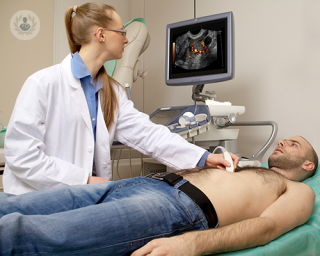

Echocardiogram: a powerful diagnostic tool for the heart
By Dr Malcolm Burgess
2024-11-21
An echocardiogram (a cardiac ultrasound) is used to assess most types of heart disease. Dr Malcolm Burgess explains when this diagnostic tool is used, the accuracy of results and what next steps might be needed. See more
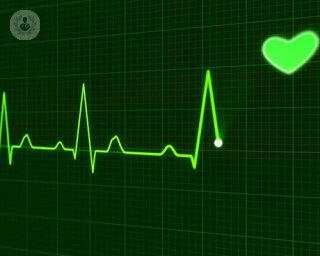

Heart murmurs in adults – part 2
By Dr Allan Harkness
2024-11-21
Are heart murmurs serious? If your heart is making unusual noises, how do doctors find the source of the problem? Expert cardiologist Dr Allan Harkness talks tests and treatment in part 2 of his piece on heart murmurs. See more
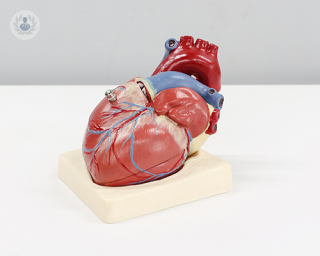

Causes of innocent and dangerous heart murmurs
By Dr Aigul Baltabaeva
2024-11-21
Heart murmurs can feel strange to those who do not know what they are. Most of the time they are harmless, but sometimes they are more serious. Experienced consultant cardiologist Dr Aigul Baltabaeva has given us a thorough explanation of the causes of both types of heart murmurs and advises when we should seek help. See more
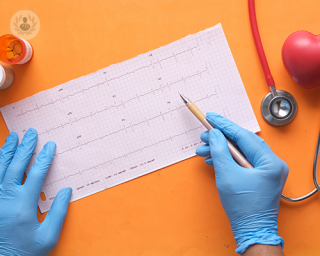

Heart murmur treatment and COVID-19
By Dr Aigul Baltabaeva
2024-11-20
You have a heart murmur, but now what? There are different kinds of treatments for different severities of murmurs. Usually it is a simple treatment, but if not, there are other options. And how has COVID-19 had an impact on patients with heart murmurs and how doctors treat the condition? Experienced consultant cardiologist Dr Aigul Baltabaeva clarifies these unknowns. See more
Experts in Heart murmur
-
Dr Michael John Van der Watt
CardiologyExpert in:
- Heart murmur
- Angina
- Syncope
- Palpitations
- Heart failure
- Pacemaker
-
Dr Nick Linton
CardiologyExpert in:
- Atrial Fibrillation
- Arrhythmia
- Hypertension (high blood pressure)
- Cardiomyopathy
- Heart attack
- Heart murmur
-
Dr Alessandro Giardini
Paediatric cardiologyExpert in:
- Chest pain
- Heart murmur
- Palpitations
- Syncope
- Echocardiogram
- Congenital heart disease
-
Dr Sachin Khambadkone
Paediatric cardiologyExpert in:
- Chest pain in children
- Heart murmur
- Congenital heart disease
- Fainting in children
- Echocardiogram
- Valvular heart disease
-
Dr Neeraj Jain
Paediatric cardiologyExpert in:
- Heart murmur
- Chest pain
- Palpitations
- Shortness of breath
- Echocardiogram
- Fainting in children
- See all

London Heart Practice (HCA)
London Heart Practice (HCA)
78 Harley St, London W1G 7HJ, United Kingdom
No existe teléfono en el centro.
By using the telephone number provided by TOP DOCTORS, you automatically agree to let us use your phone number for statistical and commercial purposes. For further information, read our Privacy Policy
Top Doctors

London Bridge Hospital - part of HCA Healthcare
London Bridge Hospital - part of HCA Healthcare
27 Tooley St
No existe teléfono en el centro.
By using the telephone number provided by TOP DOCTORS, you automatically agree to let us use your phone number for statistical and commercial purposes. For further information, read our Privacy Policy
Top Doctors

The Portland Hospital - part of HCA Healthcare
The Portland Hospital - part of HCA Healthcare
205 - 209 Great Portland St. W1W 5AH
No existe teléfono en el centro.
By using the telephone number provided by TOP DOCTORS, you automatically agree to let us use your phone number for statistical and commercial purposes. For further information, read our Privacy Policy
Top Doctors
-
London Heart Practice (HCA)
78 Harley St, London W1G 7HJ, United Kingdom, Central LondonExpert in:
- Cardiology
- Preventive cardiology
- Chest pain
- Cardiovascular disease
- Palpitations
- Coronary CT
-
London Bridge Hospital - part of HCA Healthcare
27 Tooley St, Central LondonExpert in:
- 24-hour service
- Cardiology
- Minimal access surgery (keyhole surgery)
- Orthopaedic surgery
- Cardiovascular disease
- Gastroenterology
-
The Portland Hospital - part of HCA Healthcare
205 - 209 Great Portland St. W1W 5AH, Central LondonExpert in:
- Neurological spinal surgery
- Orthopaedic spinal surgery
- Maternity care
- Pregnancy
- Scoliosis
- In vitro fertilisation (IVF)
- See all
- Most viewed diseases, medical tests, and treatments
- Autoimmune diseases
- Joint pain
- Nutrition
- Genetic testing
- Abdominal pain
- Vaginal cytology
- Heart murmur in children
- Parkinson's disease
- Biomarkers
- Osteoporosis




